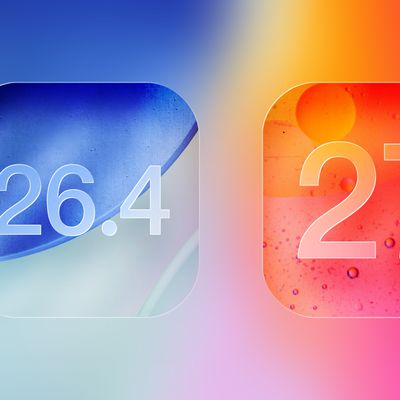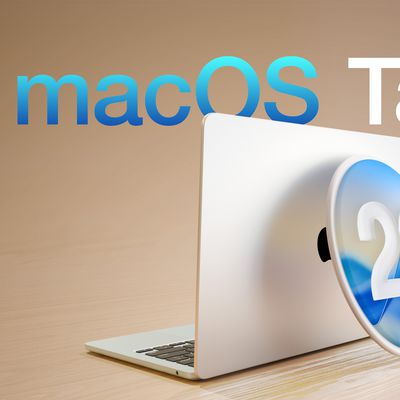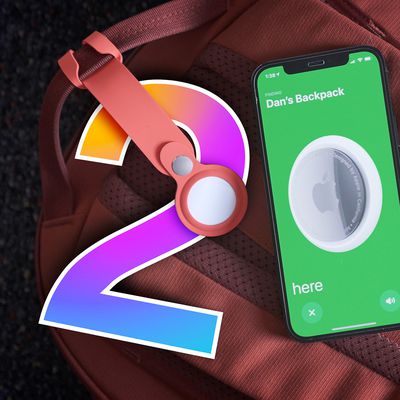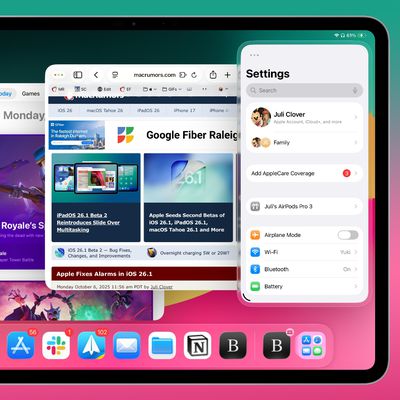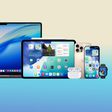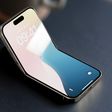Airline Industry Remains Divided Over Personal Electronics Usage During Takeoff and Landing
 Earlier this year, we noted that the U.S. Federal Aviation Administration (FAA) was continuing to look at the use of personal electronic devices during the taxi, takeoff, and landing phases of commercial flights, hoping to take action by the end of the year to loosen restrictions currently requiring that all devices be powered down during these times.
Earlier this year, we noted that the U.S. Federal Aviation Administration (FAA) was continuing to look at the use of personal electronic devices during the taxi, takeoff, and landing phases of commercial flights, hoping to take action by the end of the year to loosen restrictions currently requiring that all devices be powered down during these times.
Bloomberg now provides another update on the situation, noting that the airline industry remains divided over whether restrictions should be relaxed as reports of possible interference between these devices and aircraft electronics continue to surface. The report leads with a brief anecdote involving an iPhone:
The regional airliner was climbing past 9,000 feet when its compasses went haywire, leading pilots several miles off course until a flight attendant persuaded a passenger in row 9 to switch off an Apple Inc. iPhone.
“The timing of the cellphone being turned off coincided with the moment where our heading problem was solved,” the unidentified co-pilot told NASA’s Aviation Safety Reporting System about the 2011 incident. The plane landed safely.
Despite the fact that correlation does not necessarily imply causation, some pilots and airlines remain concerned over the potential impact of these electronic devices on their aircraft. The International Air Transport Association collected a list of 75 suspected cases of interference between 2003 and 2009 and airlines are continuing to see occasional reports, although some remain in favor of relaxing the regulations.
Even Delta Air Lines Inc., which argued for relaxed rules, told the U.S. Federal Aviation Administration its pilots and mechanics reported 27 suspected incidents of passenger electronics causing aircraft malfunctions from 2010 to 2012. Atlanta-based Delta said it couldn’t verify there was interference in any of those cases.
The airline industry has been divided. Delta said in its filing that it welcomes more electronics use because that’s what its passengers wanted. United Continental Holdings Inc. said it preferred no changes because they’d be difficult for flight attendants to enforce.
Just last week, a study indicated that 30% of U.S. airline passengers who have brought electronic devices onboard have accidentally left them on at least once.
With increased connectivity in the air through in-flight Wi-Fi and pilots even taking advantage of iPads to replace their traditional flight bags weighing 30-40 pounds, consumer demand for increased access to their electronic devices during flight has raised visibility of the debate over whether such devices pose risks during critical phases of flight. For now, the debate continues to play out as both sides seek to use scientific data to back up their positions.
Popular Stories
Macworld's Filipe Espósito today revealed a handful of features that Apple is allegedly planning for iOS 26.4, iOS 27, and even iOS 28.
The report said the features are referenced within the code for a leaked internal build of iOS 26 that is not meant to be seen by the public. However, it appears that Espósito and/or his sources managed to gain access to it, providing us with a sneak peek...
Apple seeded the second iOS 26.2 Release Candidate to developers earlier this week, meaning the update will be released to the general public very soon.
Apple confirmed iOS 26.2 would be released in December, but it did not provide a specific date. We expect the update to be released by early next week.
iOS 26.2 includes a handful of new features and changes on the iPhone, such as a new...
Apple today released iOS 26.2, the second major update to the iOS 26 operating system that came out in September, iOS 26.2 comes a little over a month after iOS 26.1 launched. iOS 26.2 is compatible with the iPhone 11 series and later, as well as the second-generation iPhone SE.
The new software can be downloaded on eligible iPhones over-the-air by going to Settings >...
Apple today released new firmware designed for the AirPods Pro 3 and the prior-generation AirPods Pro 2. The AirPods Pro 3 firmware is 8B30, up from 8B25, while the AirPods Pro 2 firmware is 8B28, up from 8B21.
There's no word on what's include in the updated firmware, but the AirPods Pro 2 and AirPods Pro 3 are getting expanded support for Live Translation in the European Union in iOS...
Apple today released macOS Tahoe 26.2, the second major update to the macOS Tahoe operating system that came out in September. macOS Tahoe 26.2 comes five weeks after Apple released macOS Tahoe 26.1.
Mac users can download the macOS Tahoe update by using the Software Update section of System Settings.
macOS Tahoe 26.2 includes Edge Light, a feature that illuminates your face with soft...
The AirTag 2 will include a handful of new features that will improve tracking capabilities, according to a new report from Macworld. The site says that it was able to access an internal build of iOS 26, which includes references to multiple unreleased products.
Here's what's supposedly coming:
An improved pairing process, though no details were provided. AirTag pairing is already...
Apple today released iPadOS 26.2, the second major update to the iPadOS 26 operating system released in September. iPadOS 26.2 comes a month after iPadOS 26.1.
The new software can be downloaded on eligible iPads over-the-air by going to Settings > General > Software Update.
iPadOS 26.2 continues with the multitasking improvements that were added with iPadOS 26.1. You can now drag and...
Apple today released iOS 26.2, iPadOS 26.2, and macOS 26.2, all of which introduce new features, bug fixes, and security improvements. Apple says that the updates address over 20 vulnerabilities, including two bugs that are known to have been actively exploited.
There are a pair of WebKit vulnerabilities that could allow maliciously crafted web content to execute code or cause memory...
 Earlier this year, we noted that the U.S. Federal Aviation Administration (FAA) was continuing to look at the use of personal electronic devices during the taxi, takeoff, and landing phases of commercial flights, hoping to take action by the end of the year to loosen restrictions currently requiring that all devices be powered down during these times.
Earlier this year, we noted that the U.S. Federal Aviation Administration (FAA) was continuing to look at the use of personal electronic devices during the taxi, takeoff, and landing phases of commercial flights, hoping to take action by the end of the year to loosen restrictions currently requiring that all devices be powered down during these times.

